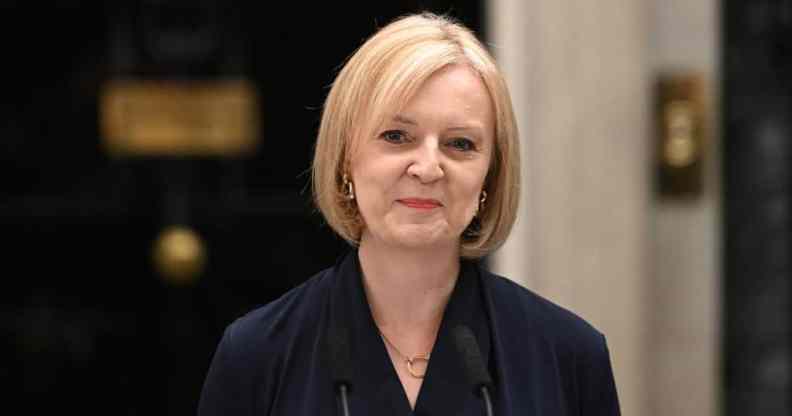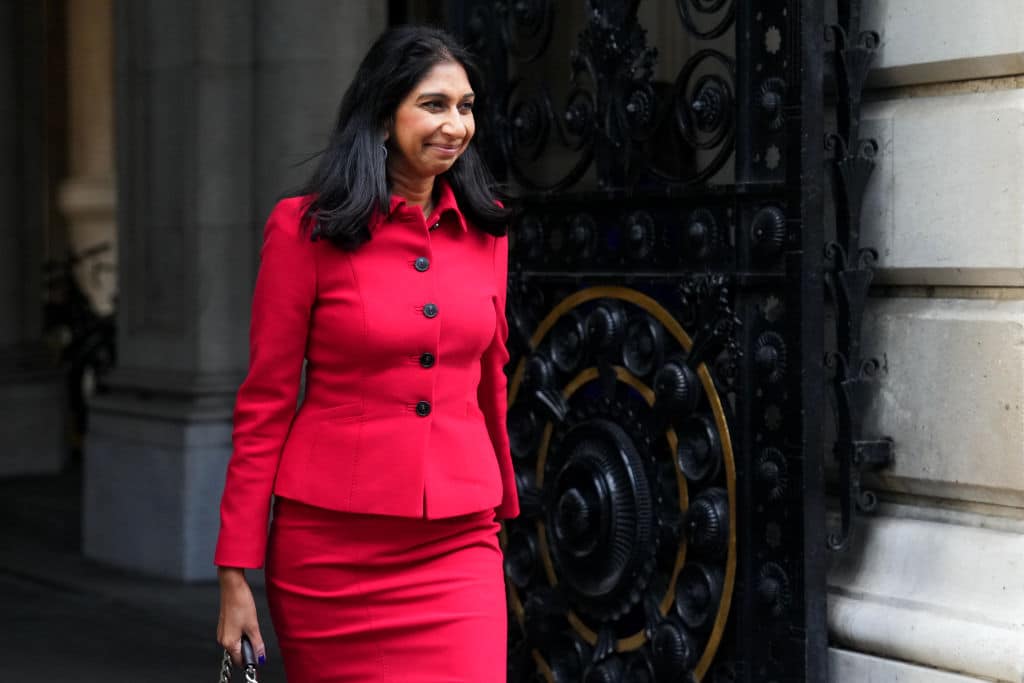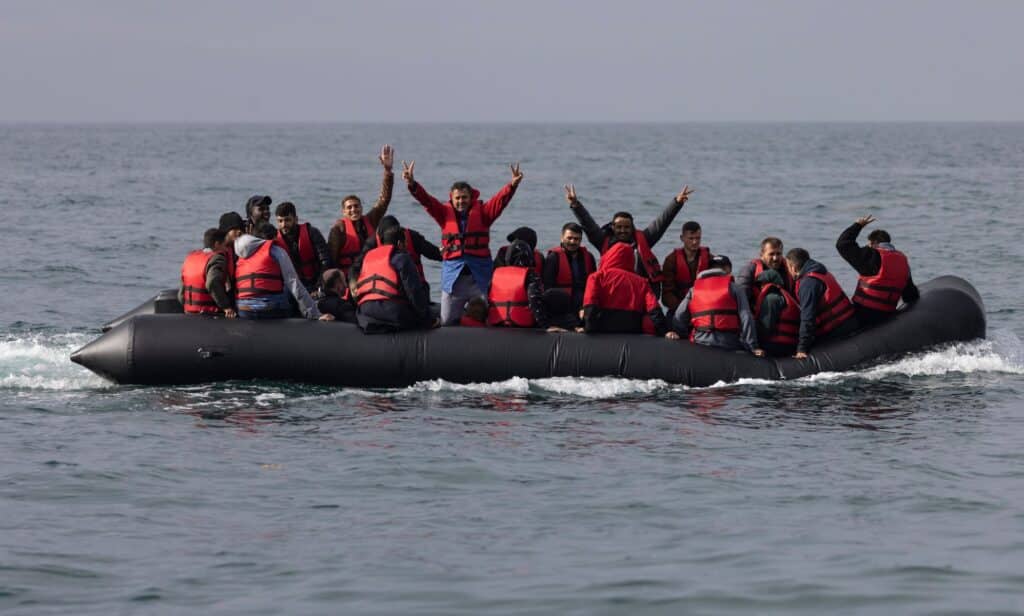Liz Truss urged to ditch ‘dangerous’ Rwanda asylum plan that could kill LGBTQ+ refugees

New UK prime minister Liz Truss. (Leon Neal/Getty)
New prime minister Liz Truss is being urged to drop the government’s “ill-conceived” Rwanda refugee plan.
In May, Boris Johnson announced a new immigration pact to forcibly send asylum seekers who arrive via the English Channel 4,000 miles to Rwanda, with then-home secretary Priti Patel flying to the east African nation to sign the deal.
A planned first flight to Rwanda failed to take off following an intervention by the European Court of Human Rights in July. On Tuesday (6 September), a group of refugees launched a legal challenge to the pact in the High Court, arguing that the government ignored evidence of Rwanda’s human rights atrocities.
Liz Truss, who became prime minister on Tuesday, has said she is “determined to see the Rwanda policy through to full implementation as well as exploring other countries where we can work on similar partnerships”.
Suella Braverman, the new home secretary, has previously vowed to take Britain out of the European Convention on Human Rights, which was used to stop the Rwanda flight.
Safe Place International, a not-for-profit organisation that supports LGBTQ+ asylum seekers worldwide, sees the deal as entirely unworkable, unethical and as one out of pace with a country so many view as “progressive”.
Communications director Lebo Mncayi-Poloko, a non-binary person in South Africa, told PinkNews: “The immigration pact between Britain and Rwanda is ill-conceived and in many ways contravenes a number of human rights declarations and treaties of which Britain is a signatory.”
They cited Britain’s commitment to the United Nation’s 1951 Refugee Convention, which requires asylum seekers not be forcibly sent to unsafe areas.
Mncayi-Poloko added: “It is inconceivable to me that a country we regard as progressive in terms of LGBTQ+ rights would wilfully get into bed with a country that still criminalises many aspects of the LGBTQ+ community.”

New home secretary Suella Braverman. (Carl Court/Getty)
While homosexuality is not illegal in Rwanda, discrimination remains. Many hide who they are to avoid being beaten, losing their jobs, being evicted from their homes or even jailed under public decency laws.
As part of the deportation policy, asylum seekers’ claims would be processed in Rwanda before being resettled there, something Mncayi-Poloko cautions would see LGBTQ+ people outed.
Processing centres would likely become hotbeds of hate, with trans people facing violence in single-sex spaces such as bathrooms, while many gay and bisexual people would re-closet themselves to stay safe.
Mncayi-Poloko said this is reason enough for the policy to be rethought, and certainly not replicated.
“LGBTQ+ rights are neither recognised nor protected in Rwanda, and a deal such as this sets a very dangerous precedent that can only do more harm than good,” Mncayi-Poloko added.
“This could have a myriad of safety concerns for African citizens who sought asylum on British territory.”
Just because being gay is legal doesn’t mean it’s safe, warns refugee activist
A Home Office minister in April said Rwanda has made “huge strides forward over the past three decades“, defending the country’s LGBTQ+ rights record from criticisms he saw as reliant on “stereotypes”.
This is despite the Home Office admitting there’s evidence LGBTQ+ refugees could face persecution in the country.
Gagotheko Mothai, a non-binary community leader based in Maun, Botswana, told PinkNews the UK government can’t take a country’s laws at face value as it did with Rwanda.
As an example, they said their home country has seen “new progressive laws around gender and sexuality”, but “remains a largely conservative and heteronormative society that finds difficulty in imagining anything beyond the binary”.
“We live in constant fear of being rejected by our families, our churches and indeed other sectors of society. As a non-binary person, I often feel invisible and unnoticed. I am therefore in a constant fight for my rights, safety and freedom to be acknowledged and respected.”

Only 677 LGB asylum seekers were granted asylum or other forms of leave by the Home Office in 2021. (Dan Kitwood/Getty)
While Mothai has vowed to stay in Botswana to do what they can to fight, not everyone has that option.
As Mncayi-Poloko recalled: “A story that particularly sticks in my mind is that of a young lesbian woman who was repeatedly gang raped by border police in the receiving country’s detention centre. She contracted HIV from that experience and died by suicide three years later.
“On any given day I come across stories of murder, gang rapes, mutilation and many other atrocities perpetrated on the LGBTQ+ communities around the world, often with impunity.”
If Truss and Braverman are in need of inspiration, Mncayi-Poloko said they can look to France and Belgium. Both nations have been “great at prioritising medical and mental health assessments and interventions for LGBTQ+ asylum seekers”.
“They have also shown an awareness and sensitivity to the unique threats experienced by LGBTQ+ asylum seekers and have regularly expedited the processing of these cases,” they added.
To any queer people considering seeking asylum, Mothai said: “My advice would be: Always put your safety first, research, reach out and link with some LGBTIQ organisations in the country.”

